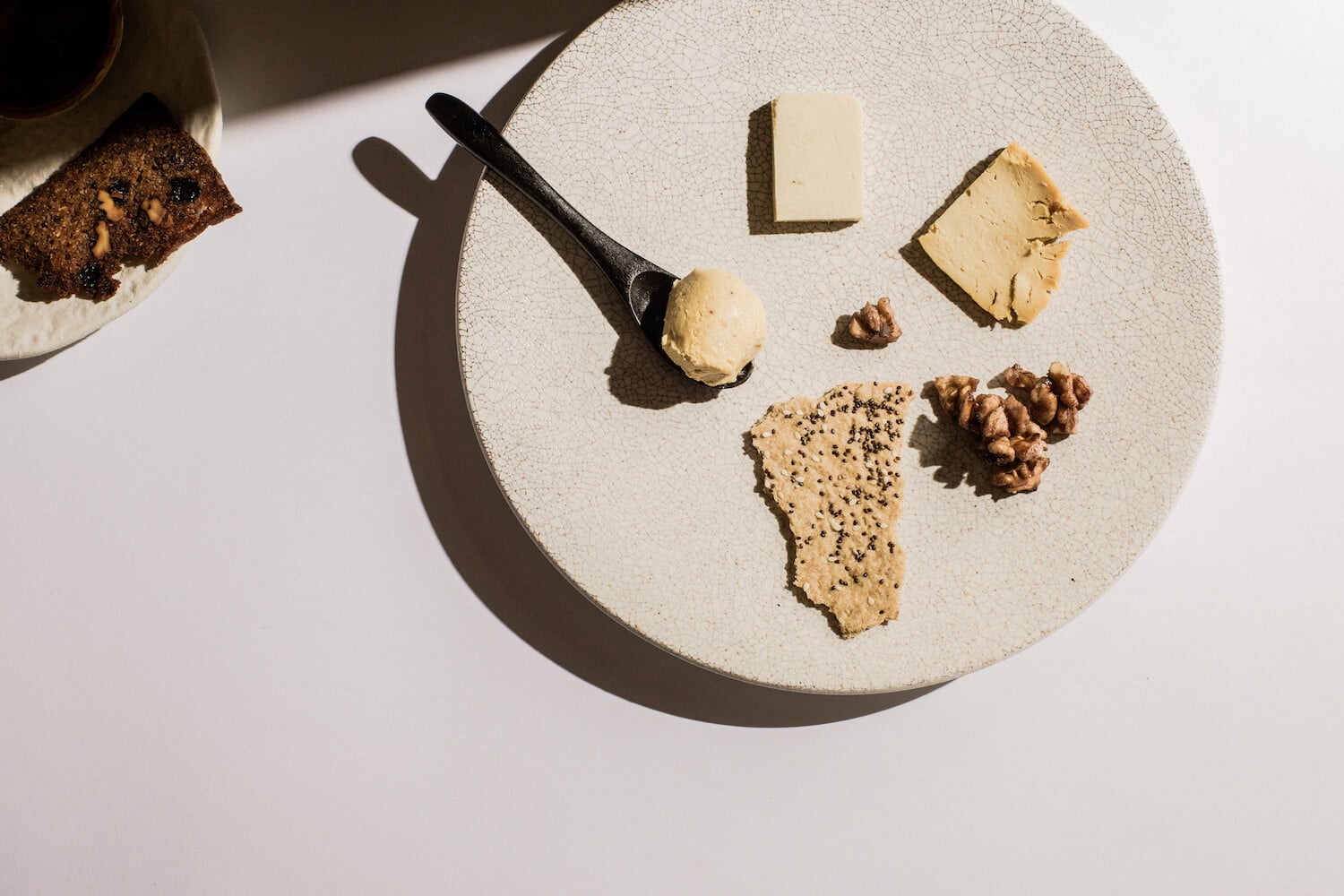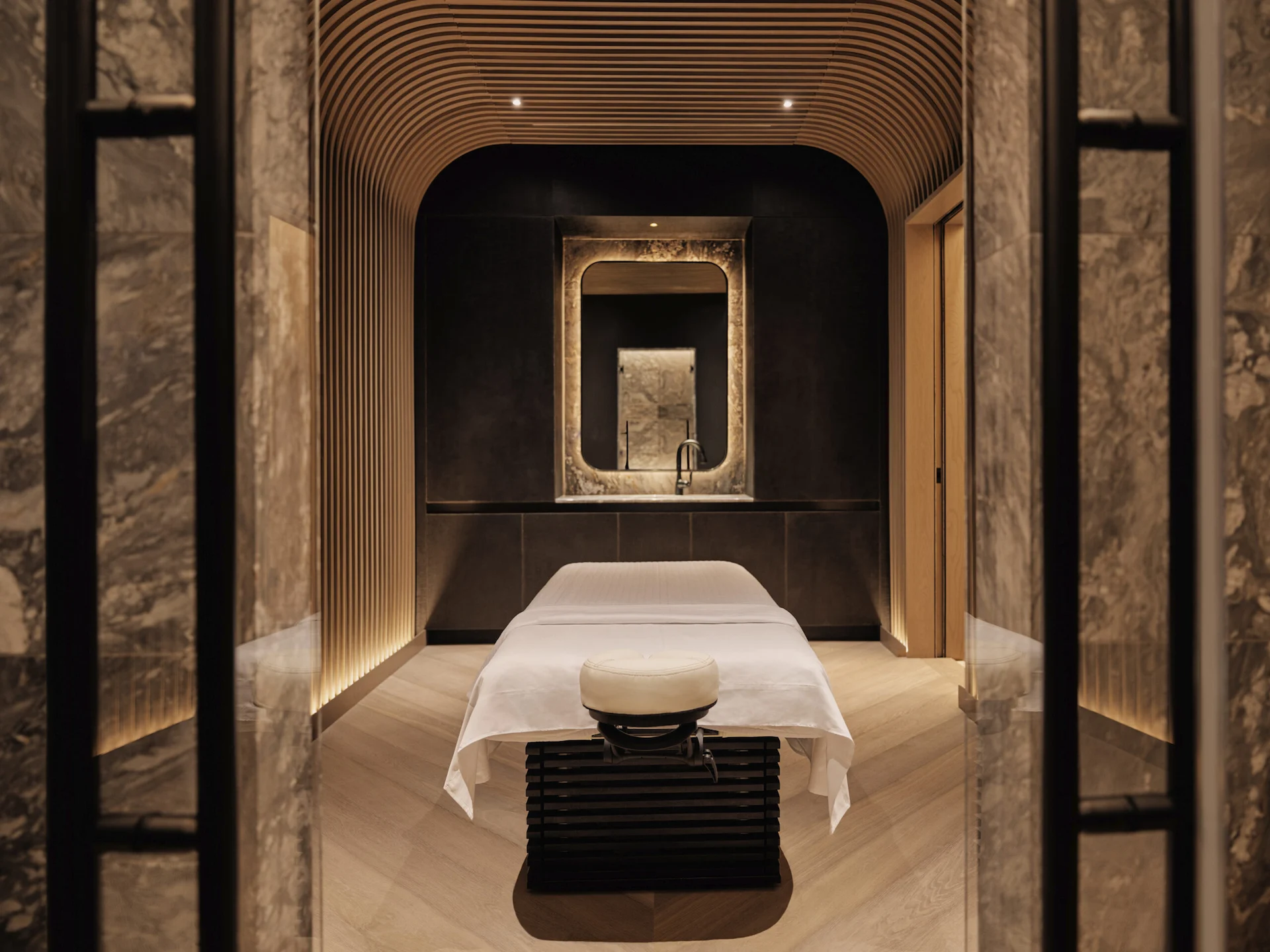Grassroots Pantry has been one of the iconic landmarks of Hong Kong’s plant-based dining scene since it opened back in 2012, evolving from a small cafe in Sai Ying Pun to an upmarket dining room on Hollywood Road, Soho. Founder and Head Chef Peggy Chan has always been on a mission to revolutionise Hong Kong’s eating habits, both for the health of ourselves and the environment, and it’s this goal that has led to Grassroots Pantry’s next evolution. As our favourite plant-based restaurant evolves into Nectar and Pollen Lab, Compare Retreats’ founder Dervla Louli talks to restaurateur and Hong Kong’s plant-based visionary Peggy Chan about the new opening and Hong Kong’s food chain.

Tell us about the evolution of Grassroots Pantry into Nectar and Pollen Lab? The evolution of Grassroots over the years has been very organic: we’ve refused to rest on our laurels and have evolved whether that be in techniques, creating tasting menus or finding new ways to embed sustainability principles in our restaurant ethos. Pushing our chefs and our employees to grow with us whether it was in the way we deliver a restaurant experience or holding ourselves accountable as a sustainable restaurant is central to the long-term success of Grassroots.
This natural progression entered its last stage a year ago when we realised the model we were working off of at Grassroots was becoming more and more mainstream. This is excellent as we’ve made vegan and vegetarian eating accessible. Towards the end of last year was when I’ve simply had to acknowledge that our job in this middle market was complete, despite how comfortable we have become. As a chef, my goal is to continuously challenge myself in my craft. To do so, I have to learn to slow down, produce less but focus more on delivering a more valued service and product.
See also: Peggy Chan On Business, Retreats and Wellness Rituals
We’ve sought to be leaders in our field for years by making plant-based diets the norm. Now with the combined decades of know-how in holistic nutrition, sustainable systems and culinary arts, our mission with Nectar is to create the leading high-end and educational plant-based restaurant in Asia.

What can we expect from both new concepts? When we decided to take on the Pollen Lab project, the idea was to spread knowledge and accelerate change in ways that we could not do via one single restaurant. Therefore, Pollen Lab will cater to people who wanted to learn about plant-based cuisine and the link between it and sustainability so they can ‘DIY’ at home. On the other hand, Nectar is a space for us to offer diners an integrated experience that combines knowledge, techniques and ingredients; customers can connect with our chefs, our farmers and their backgrounds. Essentially both are about connecting our knowledge back to the community, which is what Grassroots Pantry started out as; a café and workspace where we could create this community and increase awareness around the benefits of plant-based eating.
How will the Grassroots Pantry brand fit into this new structure? Grassroots Pantry will now become a mother company: the name of our mother company is Grassroots Initiatives, and all of the projects we do will fall under this. Pollen Lab is our research and training ground, Nectar is our fine dining restaurant, and the opportunities are endless to what we can do in the future. The Grassroots brand and trademark is synonymous to sustainable food service and has remained strong to this day, hence why Grassroots is integral to our next phase of growth.

Will some of our favourite Grassroots classics still be available? We have to slowly transition customers from Grassroots Pantry to Nectar, as we understand it’s a bit of a shock—so yes, some favourites will still be available but in a more elevated way. The presentation, service, experience and restaurant interior will be different but there will be a sense of familiarity too. We have a five-course tasting menu called ‘Original Grassroots’, which involves some of our classics but with a twist. There will be hints of the classic ‘popcorn chicken’ and the linguini, but the next version will be even better.
What Pollen Lab classes and Nectar offerings should we have on our radar? For Pollen Lab, we’re doing classes that will help people get the knowledge they need to replicate Grassroots classics or perfect your plant-based pantry. We’re doing classes for everyone including clients, family helpers and chefs, both amateur and professional. The helpers in Hong Kong often decide what family eats and we want to empower them to create nourishing and healing food inspired by South East Asia cuisine. We will also be putting out a range of basic and speciality classes focusing on certain areas such as Chinese cuisines, gluten-free techniques and plant-based conversion methods. Underlying all of these offerings are principles grounded in minimising food waste while producing maximum flavour and nutrients.
See also: 21 Vegan Restaurants In Hong Kong For Plant-Based Dining
At Nectar the eight-course tasting menu should definitely be on your radar. For specific dishes, our interpretations of ‘meat’ are going to be very distinctive. We don’t use mock meat: instead, we do delicious and nutritious alternatives to delicacies like Foie Gras and premium cheeses. I’m particularly excited about our cheese course, made entirely in-house from nuts, seeds and superfoods that have been activated using probiotic cultures and raw food techniques. The 14-day Comte-inspired cheese and macadamia ‘goats’ cheese are two of my favourites.

What have been the most challenging and rewarding parts of your journey as a plant-based dining pioneer in Hong Kong? The most challenging part is to overcome the fickleness of this city. The true value of food is still a huge misconception. Where food is marketed as cheap is ‘of value’, whereas nutrient-dense food that is grown in smallholder farms is expensive or overpriced. But whoever said good clean food should be cheap, right? Corrupted governance led by agribusinesses, food marketers, GMO giants and the meat and dairy industry lobbyists did. There’s still a lot to do education-wise when it comes to our food value chain, and convincing people to invest in what they put into their bodies. The challenge is no longer in making a vegan burger taste just like a real beef burger or converting the majority of omnivores to become vegans: the challenge is getting our society to value real food.
See also: 10 Foodie Entrepreneurs Helping Hong Kong Eat Well
The most rewarding part has definitely been the community that has developed around the work we do. I don’t think other restaurants work across as many different disciplines—we’re not just a restaurant, but also a social enterprise. It’s a platform to connect us with farmers, social activists and entrepreneurs, environmentalists, academics, scientists and chefs. We can all do better in the way we source, produce, manufacture and consume our food, and also in the way we treat our people, the way we hire to ensure we have a diversity in our teams, and of course, the way we manage our environmental impact.
What drives you to continue pushing boundaries after achieving such success? I always think that I can do more, there are never too many people to help or get involved, and there’s never enough impact you can create. I don’t see that I’ve achieved all of my successes yet and I think there is still a lot more work to be done, especially when it concerns educating others on food sustainability. This is really a journey—we never complete our work, we just continue to galvanise others to join us.
Nectar will open its doors on July 25th, and Pollen Lab will open later this year. Discover more here: nectarexperience.co



